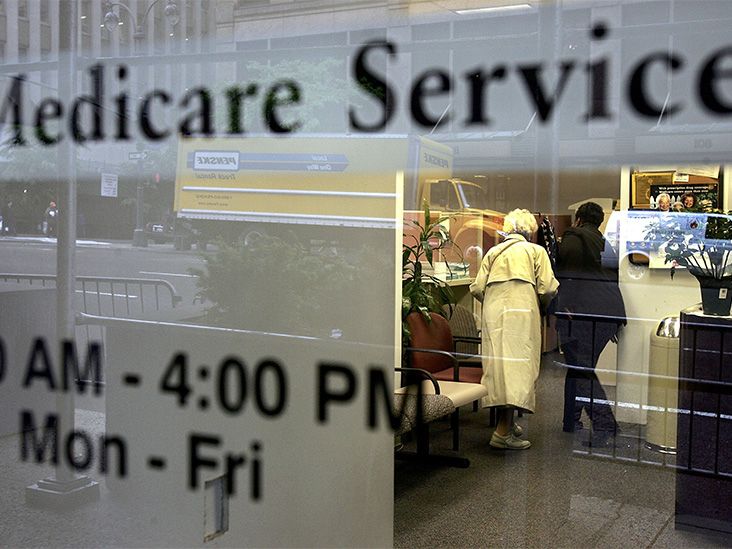Picture this: you're sitting at your kitchen table in Houston or out in the Hill Country, retirement just around the corner, and suddenly the Medicare enrollment letters start arriving. It's like opening a puzzle box with no picture on the lid confusing and a little overwhelming, right?
You're not alone in feeling this way. Every year, thousands of Texans find themselves in the same boat, trying to figure out what Medicare actually means for their unique situation. Whether you're approaching 65, living with a disability, or caring for someone who is, understanding your options doesn't have to feel like decoding ancient hieroglyphics.
Let's be honest the world of Medicare can feel like navigating a maze designed by someone who loves acronyms a little too much. But here's what I want you to know: once you understand the basics, it's really about finding what fits your life in the Lone Star State. From El Paso to Beaumont, from small towns to big cities, your Medicare journey is as unique as a Texas sunset.
So grab your favorite cup of coffee maybe something strong if you're tackling this early and let's walk through this together. Think of me as your friendly guide who's already walked this path and wants to make sure you feel confident about your choices.
The Fundamentals Unpacked
Let's start with the basics because, honestly, Medicare isn't as complicated as it first appears. Think of it like ordering at your favorite barbecue joint there are different parts, and you get to choose what works best for your appetite and budget.
Medicare breaks down into four main parts, and trust me, I've seen folks get overwhelmed trying to remember all the letters:
Part A covers hospital stays, skilled nursing facility care, and some home health services. Most people don't pay a premium for Part A if they or their spouse paid Medicare taxes while working.
Part B handles your medical insurance think doctor visits, outpatient care, preventive services, and medical supplies. There's usually a monthly premium for Part B, which gets deducted from your Social Security check.
Part C, also known as Medicare Advantage, is like the combo meal option. These plans are offered by private insurance companies approved by Medicare and typically include Parts A and B, often Part D (prescription drugs), and sometimes extra benefits like dental or vision coverage.
Part D specifically covers prescription drugs. You can get this as a standalone plan if you're on Original Medicare, or it's often included in Medicare Advantage plans.
Now, who qualifies for Medicare in Texas? Well, if you're 65 or older and a U.S. citizen or permanent resident who's lived in the country for at least five years, you're eligible. But it's not just about age people under 65 with certain disabilities, end-stage renal disease (ESRD), or amyotrophic lateral sclerosis (ALS) can also qualify.
And here's something that might surprise you: over 4.7 million Texans are currently enrolled in Medicare, which means there's a whole community of people who've already figured this out and are living their best lives with the right coverage.
Original vs. Advantage in Texas
This is where things get interesting, and honestly, it's probably the most important decision you'll make. Think of Original Medicare and Medicare Advantage like choosing between cooking at home or eating at your favorite restaurant.
Original Medicare (Parts A and B) gives you the freedom to see any doctor or hospital that accepts Medicare, anywhere in the United States. It's like having a universal key that opens doors everywhere. You pay your Part B premium, plus a deductible for Part A hospital stays, and then Medicare covers 80% of approved services after that. The remaining 20% comes out of your pocket that's where Medigap (supplemental insurance) can help.
When I talk to folks about Original Medicare, I often hear concerns about those out-of-pocket costs. And you know what? Those concerns are completely valid. That's exactly why Medigap policies exist they can help cover those gaps in Original Medicare, giving you more predictable healthcare expenses.
Medicare Advantage plans (Part C) are like choosing a restaurant that offers everything on one menu. These plans must cover everything that Original Medicare does, but they often include prescription drug coverage, and frequently offer additional benefits like dental, vision, hearing, and gym memberships. The trade-off? You typically need to see providers within the plan's network, except in emergencies.
Here's where it gets really interesting for Texans. Medicare Advantage plans in our state have seen some exciting developments recently. According to Healthline, average Medicare Advantage premiums in Texas dropped again in 2025, now averaging just $6.81 per month. That's less than the cost of a fancy coffee drink!
But let's not just talk numbers. What does this mean for your day-to-day life? Well, imagine having a plan that not only covers your doctor visits but also gives you access to dental care something that's not included in Original Medicare. Or consider the value of having prescription drug coverage built right in, so you don't have to juggle multiple policies.
| Plan Type | Inpatient Hospital | Doctor Visits | Prescription Drugs | Extra Benefits |
|---|---|---|---|---|
| Original Medicare | Yes | Yes | No (get Part D) | No |
| Medicare Advantage (TX) | Yes | Yes | Often included | Dental, Vision, Gym |
The beauty of Medicare Advantage is that it's grown to include some really innovative offerings. Some plans even offer telehealth services, transportation to medical appointments, and wellness programs. For active Texans who want to stay on top of their health, these extra benefits can make a real difference.
Texas-Specific Plan Options
Now here's where things get really exciting and where your location in this great state of Texas starts to matter. You see, Medicare plans aren't one-size-fits-all across the country, and Texas has its own flavor of options.
If you're looking at Medicare Advantage plans in Texas, you've got some solid choices from well-known insurers. Blue Cross Blue Shield of Texas, Humana, Aetna, and Wellpoint all offer Medicare Advantage plans in various parts of the state. And here's something that might surprise you depending on where you live, you might have access to Special Needs Plans (SNPs) that cater to specific health conditions or circumstances.
For example, if you live in Dallas-Fort Worth, you might find a different array of options than someone in McAllen or Amarillo. It's a bit like how different regions of Texas have their own barbecue styles there's something for everyone, but the specific choices vary by location.
One thing that really stands out in Texas is the availability of zero-premium Medicare Advantage plans. Now, don't think this means you're getting healthcare for free you're still paying your Part B premium, and there are copays and deductibles to consider. But for many Texans, finding a plan with no additional monthly premium beyond what they're already paying for Part B can be a game-changer for their budget.
Speaking of budget-friendly options, let's talk about Medicare Part D in Texas. If you're staying with Original Medicare, prescription drug coverage through Part D is essential. I know what you're thinking another part to keep track of! But here's the thing: most people on Original Medicare need prescription drug coverage, even if they don't take many medications now. Why? Because going without it can result in penalties later if you decide you need it.
Part D plans vary by region, which means the specific drugs covered and the costs associated with them can be different depending on whether you're in Austin, San Antonio, or Brownsville. This is where that ZIP code tool on Medicare.gov becomes your best friend. You can enter your medications and see exactly what each plan in your area would cost you.
For instance, let's say you're taking a common cholesterol medication like atorvastatin. The cost could vary significantly between plans in different parts of Texas. What might cost you $15 per month in Houston could be $25 in another city. That's why it's worth spending a little time shopping around those savings can really add up over a year.
Should You Consider Medigap?
If you're sticking with Original Medicare, Medigap (Medicare Supplement Insurance) might be worth considering. Think of Medigap as your healthcare security blanket it helps cover those out-of-pocket costs that Original Medicare doesn't pay.
In Texas, several insurers offer Medigap policies, including AARP UnitedHealthcare, Humana, and Blue Cross. But here's something important to understand Medigap policies are standardized into 10 different plan types, labeled with letters from A through N. Plan F, for example, offers the most comprehensive coverage, while Plan G covers everything except the Part B deductible.
The timing of when you buy Medigap matters a lot. There's something called the Medigap Open Enrollment Period, which starts the first day of the month you're 65 or older and enrolled in Part B, and lasts for six months. During this time, insurers can't deny you coverage or charge higher premiums based on your health status.
I've seen folks wait too long to buy Medigap and then struggle to get coverage because of pre-existing conditions. If that's you, don't despair you still have options, but you might need to work with an insurance agent who specializes in Medicare to find the best plan for your situation.
Another consideration is cost. While Medigap premiums might seem high compared to Medicare Advantage premiums, remember what you're getting predictable healthcare costs no matter what happens. If you end up in the hospital for an extended stay or need frequent medical care, a Medigap policy could save you thousands of dollars.
Navigating Enrollment Periods
Timing is everything with Medicare, and trust me, getting this right can save you from some serious headaches. Think of enrollment periods like fishing seasons there are specific times when you can "catch" the coverage you want, and outside of those times, it's pretty difficult.
Your Initial Enrollment Period is a seven-month window that starts three months before you turn 65, includes your birthday month, and ends three months after. If you're already receiving Social Security benefits, you'll automatically be enrolled in Parts A and B. But if you're still working or have insurance through a current employer, you might want to delay Part B enrollment without penalty.
Missed your Initial Enrollment Period? Don't panic the General Enrollment Period runs from January 1 through March 31 each year, with coverage starting July 1. However, you might face a late enrollment penalty for Part B if you don't qualify for a Special Enrollment Period.
For Medicare Advantage and Part D plans, the Annual Enrollment Period runs from October 15 through December 7 each year. This is when you can switch from Original Medicare to a Medicare Advantage plan, switch between Medicare Advantage plans, or change your Part D prescription drug plan.
But what if your life circumstances change? Maybe you move to a different part of Texas, or you lose your employer coverage. That's where Special Enrollment Periods come into play, allowing you to make changes outside of the regular enrollment periods when certain qualifying events occur.
Money-Saving Programs for Texans
Let's talk about something that's close to my heart programs that can help make Medicare more affordable for Texans who need assistance. Because let's face it, healthcare costs are a concern for just about everyone, regardless of whether you're living in downtown Dallas or out in West Texas.
The good news? Texas participates in several Medicare Savings Programs that can help reduce costs for eligible individuals. These programs can help pay for Medicare premiums, deductibles, copayments, and coinsurance.
Qualified Medicare Beneficiary (QMB) is the most comprehensive program, helping to pay for Part A and Part B premiums, deductibles, copayments, and coinsurance. If you qualify for QMB, your healthcare providers are generally prohibited from billing you for Medicare cost-sharing amounts.
Specified Low-Income Medicare Beneficiary (SLMB) helps pay for Part B premiums only, while Qualifying Individual (QI) also helps with Part B premiums but operates on a first-come, first-served basis due to funding limitations.
There's also the Low-Income Subsidy (LIS), sometimes called "Extra Help," which can significantly reduce costs for Part D prescription drug coverage.
| Program Name | Income Cap (Single) | Income Cap (Couple) | Resources Limit |
|---|---|---|---|
| QMB | $1,255/month | $1,643/month | $9,090 / $13,630 |
| SLMB | $1,255.01$1,458 | $1,643.01$1,972 | Same as above |
| QI | $1,458$1,640 | $1,972$2,219 | Same as above |
Here's what I love about these programs they're specifically designed to help real people in real situations. If you're a Texan on a fixed income trying to choose between buying groceries and paying for prescription medications, these programs can make a meaningful difference in your quality of life.
Getting Help From Trusted Sources
You know what's really great about navigating Medicare in Texas? The help that's available when you need it. The Texas Health Insurance Counseling and Advocacy Program (HICAP), operated through the Texas Department of Aging and Disability Services, offers free, unbiased counseling to Medicare beneficiaries.
I've seen firsthand how helpful these counselors can be. They don't work for insurance companies, they don't earn commissions, and they're not trying to sell you anything. They're there to help you understand your options and make informed decisions about your healthcare coverage.
Whether you're trying to figure out why your doctor isn't in your plan's network anymore, wondering if you can switch back to Original Medicare, or need help applying for Extra Help with prescription drug costs, HICAP counselors have heard these questions before and know how to help.
The beauty of this program is that it's available to all Texans, regardless of income or health status. Whether you're living in a high-rise in Dallas or a ranch house in rural Texas, you can access this free assistance by calling 1-800-252-9240.
I also want to mention something that often gets overlooked the importance of understanding your plan's formulary (that's just a fancy word for the list of prescription drugs covered by your plan). It might sound boring, but I guarantee you'll be grateful you checked when you realize that your favorite medication is covered with a low copay instead of costing you a fortune out of pocket.
Wrapping It All Up
As we wrap up this journey through Medicare in Texas, I want you to remember something important you don't have to figure this out alone. Yes, the initial learning curve might feel steep, kind of like trying to understand the rules of football if you've never watched a game before. But once you get the hang of it, it becomes second nature.
The key to making the best Medicare decisions is starting early, asking questions (no question is too silly!), and knowing that resources are available to help you. Whether you prefer the flexibility of Original Medicare with a good Medigap policy, or the all-in-one convenience of a Medicare Advantage plan that includes your prescription drugs, there's a right choice for your situation here in Texas.
Think of Medicare enrollment like planning a road trip across our beautiful state. You could just start driving and hope for the best, or you could plan your route, pack appropriately, and make sure you have a good map. The second approach is definitely going to give you a better outcome and a lot less stress along the way.
Your Medicare journey is unique to you, your health needs, your budget, and your preferences for how you want to manage your healthcare. Don't let the complexity of the system intimidate you remember, millions of Texans have successfully navigated these waters, and so can you.
Take your time, do your research, reach out for help when you need it, and trust yourself to make the best decisions for your situation. After all, you've made it through plenty of challenges in your life already. This is just another chapter, and you've got this.
FAQs
What is Medicare in Texas?
Medicare in Texas provides health coverage to residents aged 65 and older, as well as younger individuals with certain disabilities or conditions like ALS or ESRD.
How do I choose between Original Medicare and Medicare Advantage in Texas?
Original Medicare offers flexibility to see any provider, while Medicare Advantage plans in Texas often include extra benefits like dental, vision, and prescription drug coverage with lower premiums.
Are there free Medicare plans available in Texas?
While Medicare isn't free, some Medicare Advantage plans in Texas are available with $0 monthly premiums, aside from the standard Part B premium.
When can I enroll in Medicare in Texas?
Your Initial Enrollment Period begins three months before turning 65 and ends three months after. Other enrollment periods are available throughout the year for specific situations.
Can I get help paying for Medicare in Texas?
Yes, Texas offers Medicare Savings Programs and Extra Help for eligible beneficiaries to assist with premiums, deductibles, and prescription drug costs.
Disclaimer: This article is for informational purposes only and does not constitute medical advice. Always consult with a healthcare professional before starting any new treatment regimen.
Related Coverage
Medicare fall prevention services help seniors reduce risks and maintain independence. Learn how Medicare covers wellness visits, therapy, and safety equipment....
Find the best Medicare in New Mexico options for 2025. Compare plans, enroll with confidence, and get the coverage you need....
Studies show human deaths follow circadian rhythms with most occurring early mornings around 6 am. Understanding why this happens and death's stages may ease fear....
Compare Wyoming Medicare plans including Original Medicare and Advantage options. Find the best coverage for your health and budget....
Science reveals fascinating insights into the physical and emotional experience of dying. Learn what happens to the body and mind at end of life....
Find the right Nebraska Medicare plans that fit your health needs and budget. Compare options and make informed decisions....
Medicare covers end-of-life planning services. Learn how to prepare for future healthcare decisions and ensure your wishes are respected....
Learn if you qualify for Medicare eligibility and how to enroll without penalties. Get clear, simple guidance for seniors and disabled individuals....
Find the best Medicare in Florida options with our simple guide. Compare plans and make confident healthcare decisions....
Find the best Medicare Advantage plan for 2025 by checking your doctors, prescriptions, costs, and benefits for a perfect fit....








